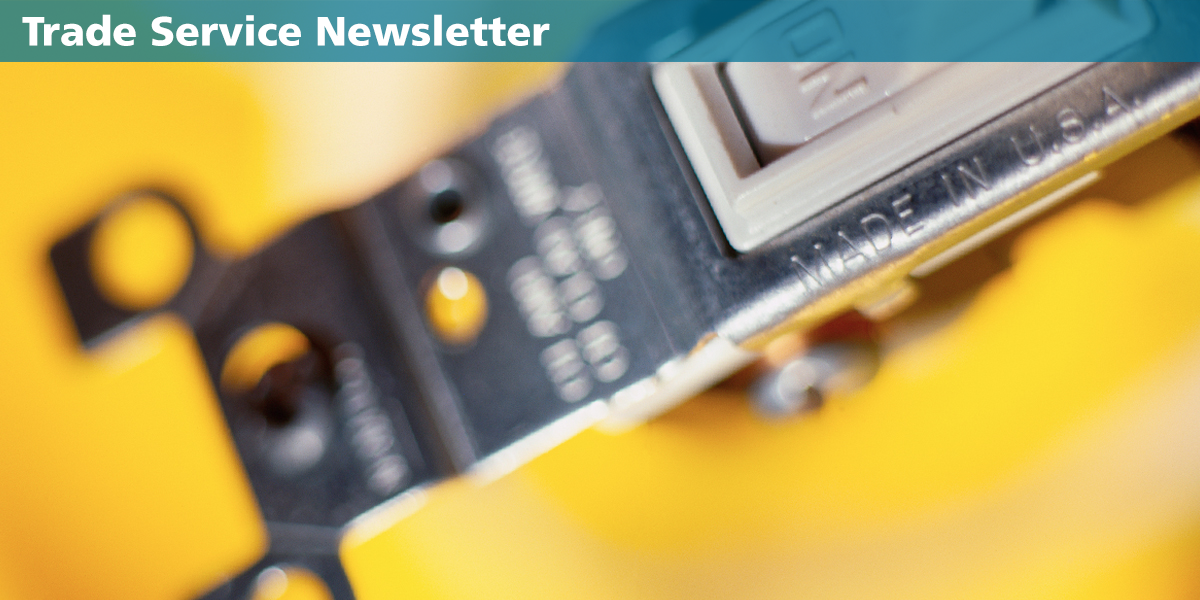Data Service Providers: Why You Need One
By Marion Roosa
Many factors are taken into account when deciding who wins a bid – the contractor’s reputation for quality and whether or not they finish on schedule is important, but material and labor cost are perhaps the most definitive factor when it comes to choosing a winner. Despite that, many contractors enter pricing, and other product data manually even though they have access to services that would make the process not only faster, but more accurate.
Estimating Automation
Estimating systems steer contractors towards automation - they often come with preloaded databases containing many regularly used industry items, and some may even contain pricing. But how quickly do these databases become outdated, with incorrect pricing, obsolete items, etc. In all likelihood before the software has even shipped! Item changes from manufacturers occur daily but take time to filter down through suppliers before they eventually get passed to contractors. The way in which the information is captured by the contractor can determine whether bad data will translate into bad bids.
Suppliers Rely on Data Providers
The difference between contractors and suppliers in dealing with product and pricing changes is that suppliers have a data provider that cleans and standardizes all the item changes, allowing them to flow clean data into their ERP system seamlessly. Despite having a large staff, suppliers know that it would take too long to attempt this process manually, and recognize that it would be incredibly error-prone. They also know that the integrity of their data structure is too important to the entire industry to trust to anyone other than expert data service providers with the task.
Bidding with Precision
Going back to the estimating system and its obsolete database: if manufacturers produce thousands of products, and distributors offer hundreds of manufacturers - how much time would a contractor have to spend updating their database to ensure accuracy? How can a contractor possibly expect to bid accurately without a data provider when they have to price thousands of items? “You’re in the minority if you’re not using a data provider,” states Tod Moore, Vice President at Trade Service . Moore says that “55-60% of commercial contractors employing an estimating system update it through a pricing service.” Those that aren’t, run the risk of bidding a wrong price and losing the job because of it, or perhaps worse, winning the bid but having to eat the cost of their pricing mistakes. “The unfortunate fact is that errors in this stage of the process resonate throughout the entire project, even if won.”
Quicken the Contractor-Supplier Connection
Tempo is the other issue. Contractors attempting to bid without a data provider, have to call/email their suppliers for quotes, or utilize the supplier’s website to find information. That takes time. It’s widely considered a best practice to go straight to the source for bid pricing since you can’t get it more accurately elsewhere - there’s just easier and faster ways of accomplishing this.
Graybar, an electrical supplier, offers an e-commerce service called “Electronic Estimation” that can drop data right into the major estimating systems. If a contractor wants to use only Graybar, that may work. However, a more encompassing approach would be to use a service like Supplier Xchange by Trade Service. It connects to Graybar, and thousands of other distributors’ branch locations across the country. Contactors simply submit a list of materials through Supplier Xchange, and receive quotes back instantly (including any company discounts). The data can then be imported right into the bid. No longer having to wait weeks on suppliers in order to work up a bid, those using a data provider can complete them in much less time, allowing them to bid on more projects than their counterparts.
Data Permeates Everything
Data’s importance and usefulness doesn’t end with winning the bid. Catalog pages, images, MSDS sheets, and installation instructions come into play during submittal creation, part numbers and pricing during procurement. This data is the glue that links each step in the design-build-operate (DBO) life cycle.
Another positive aspect of using a data service provider is standardization and its associated benefits. When manufacturers, distributors and contractors all use the same data, supply chain synchronization occurs. This results in better overall efficiency: part numbers match, UOM’s aren’t miscalculated, alternate items are easier to find, and contractor and supplier transactions are faster. It also equates to cost savings that trickle down from suppliers, to the contractor, and to the end-user.
Data accuracy is paramount and thankfully, there are entire companies devoted to ensuring it. Whether you use an estimating system, or do it all “by hand,” infusing your projects with data from professionals like Trade Service will help you succeed.

